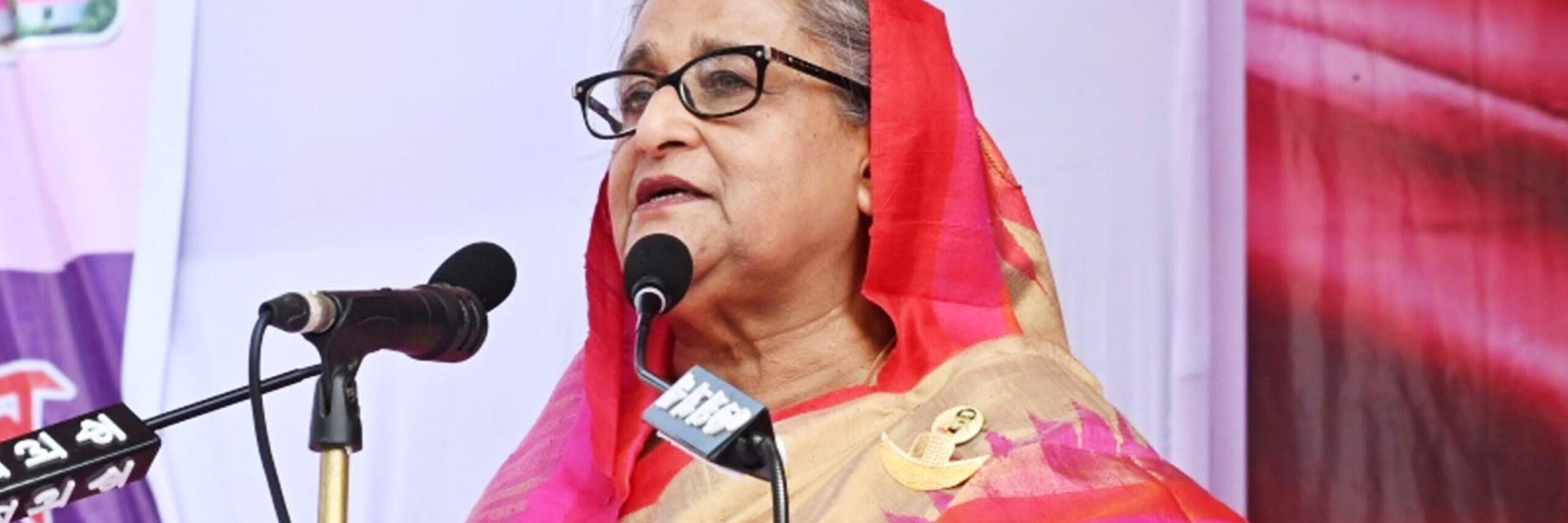Prime Minister of Bangladesh Sheikh Hasina has fled the country in the wake of mass anti-government protests. Image source: Delwar Hossain, via Wikimedia Commons.
Bangladesh Prime Minister Sheikh Hasina has resigned and fled the country following weeks of student-led mass protests calling for her to step down.
Her resignation on Monday 5 August came a day after more than 90 people were killed in clashes between demonstrators and police — the highest single-day death toll on record since the protests began in July.
Hasina was elected to head of government in 2009 and held tenure for over 15 years, the longest-serving prime minister in Bangladesh’s history.
One of the poorest countries in the world, Bangladesh achieved credible economic success under her leadership.
However, Hasina had been accused of turning increasingly autocratic and repressing any political opposition to her rule.
Protests broke out last month after the Supreme Court restored a quota reserving 30 per cent of government jobs for descendants of freedom fighters who participated in the 1971 War of Independence.
Initially confined to public universities, the protests grew into a wider anti-government movement as Hasina’s government used police to violently crack down on protesters.
According to official sources, more than 200 have been killed and over 2,500 injured since July.
On Monday, protesters defied a military-ordered national curfew to storm Hasina’s official residence in Dhaka.
Hasina reportedly fled Bangladesh for neighbouring India via a military helicopter later that day.
On Tuesday, President Mohammed Shahabuddin confirmed in a statement that parliament has been dissolved and new elections will be held as soon as possible.
An interim government will take over with immediate effect, said Chief of Army Staff General Waker-Uz-Zaman in an address to the South Asian nation.
The announcement followed a scheduled meeting between Waker-Uz-Zaman and the protest organisers.
Al Jazeera correspondent Tanvir Chowdhury reported the Students Against Discrimination movement had given “an ultimatum” to dissolve parliament or else protests would resume.
“No government other than the one proposed by the students will be accepted,” said sociology student and protest leader Nahid Islam.
“As we have said, no military government, or one backed by the military, or a government of fascists, will be accepted.
“We have given our blood, been martyred, and we have to fulfil our pledge to build a new Bangladesh.”
Nobel laureate Muhammad Yunus is slated to head the interim government, in line with the demands of the protest organisers.
Yunus said in a statement, “If action is needed in Bangladesh, for my country and for the courage of my people, then I will take it.”





